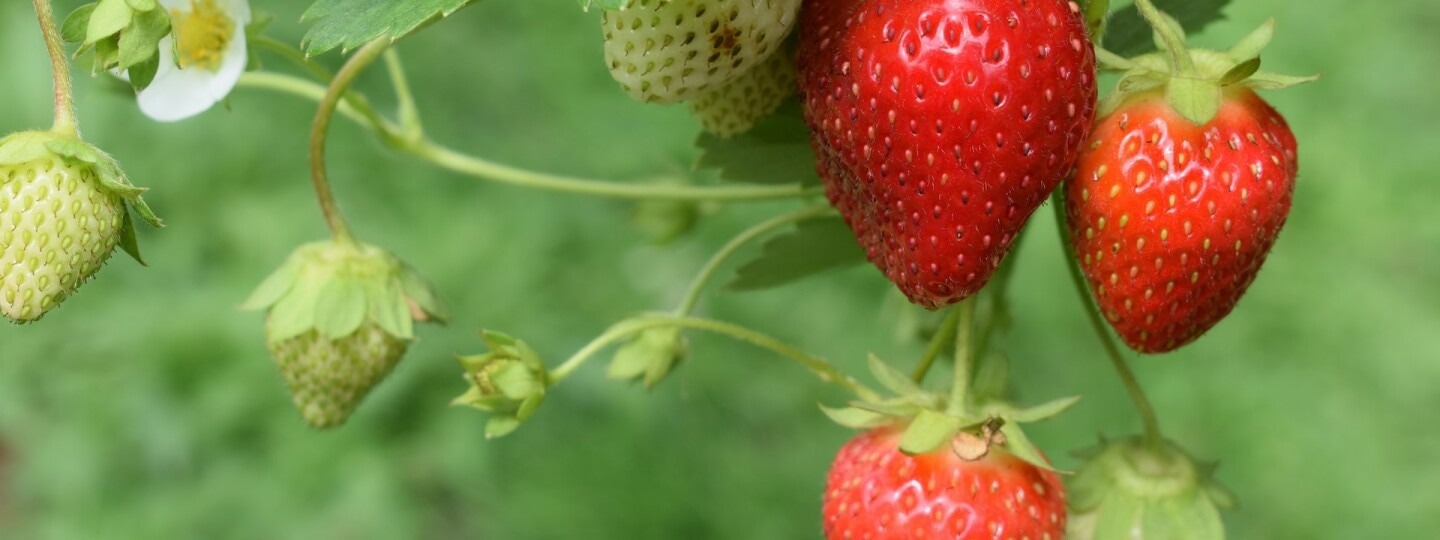Researchers from the University of Turku in Finland conducted a field study in which they evaluated the effect of glyphosate residues in soil on the endophytic microbial communities of garden strawberries.

Image Credit: Oliver Hale.
Samples taken from strawberry plants growing in the experimental field revealed that, while the overall composition of a microbial community and the growth of garden strawberries were unchanged, certain endophytic microbes known for their plant-beneficial functions were less prevalent in strawberry plants exposed to herbicide residues in soil.
These plant-beneficial microbes are endophytic meaning that they live within leaves and roots of plants. They include bacteria, and fungi, and they form microbial communities within plants. These microbial communities promote nutrition, disease resistance and stress tolerance of their host plants. So, these endophytic microbes are essential partners of plants, as plants depend on them for health and survival.”
Dr Suni Mathew, Department of Biology, University of Turku
Glyphosate-based herbicides are used to eliminate weeds in agricultural fields prior to sowing and are said to degrade quickly in the soil, preventing agricultural crops planted after the two-week safety period from being exposed to the chemical. Other research, however, has indicated that this is not the case, with little glyphosate residues found in the soil even after two weeks.
In this research, experimental field herbicide plots were sprayed with a standard dose of glyphosate-based herbicide (glyphosate concentration: 450 g L-1, CAS: 3864-194-0, application rate: 6.4 L ha-1), whereas control plots were treated with tap water. The researchers watched the two-week safety period after spraying before planting the strawberry plantlets.
Researchers are only Starting to Understand the Importance of Endophytic Microbes to Plant Health
The impact of glyphosate is based on the suppression of the “shikimate pathway,” a metabolic pathway for amino acid synthesis found in plants but not in animals. This route, however, is found in many microorganisms.
It is often overlooked that the shikimate pathway is present in microbes as well. We know already that glyphosate-based herbicides and their residues can affect some free-living microbes in soil. Altogether, we are only starting to understand the importance of endophytic microbes to plant health. Thus, it is important to study whether these microbes are affected by glyphosate residues. The next question is whether the glyphosate residues that imposed changes in endophytic microbes are also affecting plant nutrition, health and disease-resistance, among other things.”
Dr Suni Mathew, Department of Biology, University of Turku
The research also used a novel bioinformatics approach to determine whether changes in microbial communities are related to glyphosate sensitivity. The microbial community in the roots of the plants in the herbicide plots had more possibly glyphosate-resistant bacteria than the roots of the plants in the control plots, according to the findings.
This change in the bacterial community toward potentially glyphosate-resistant bacteria may result in a decrease in microbial diversity.
Our study shows how even very low residues of agrochemicals can affect plant-associated microbes. Changes in the abundance of certain plant-beneficial endophytic microbes and the dominance of potentially glyphosate resistant bacteria can be concerning if they have consequences on plant health in the long run.”
Dr Suni Mathew, Department of Biology, University of Turku
Source:
Journal reference:
Mathew, S. A., et al. (2023). Glyphosate-based herbicide use affects individual microbial taxa in strawberry endosphere but not the microbial community composition. Journal of Applied Microbiology. doi.org/10.1093/jambio/lxad006.